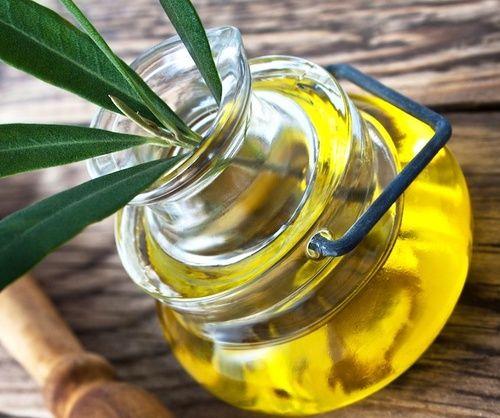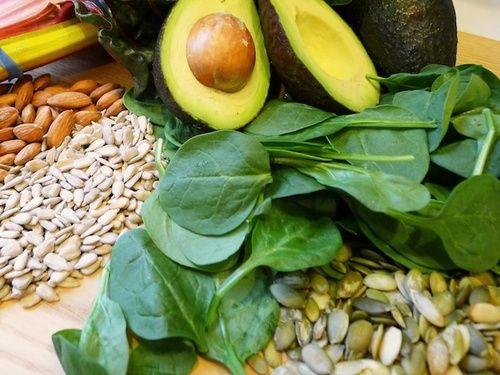, Naturopath
La Vitamin E is the name given to a group of fat-soluble compounds (which dissolve in fats) ad antioxidant activity able to protect against the action of free radicals, the cause of cellular aging and numerous pathologies such as the reduction of cellular oxidative stress, the control of some lipid parameters and promote a good energy production and metabolic. Let's find out better.
> Herbal supplements of vitamin E
> Vitamin E supplements on the market
> Daily requirement
Olive oil among vitamin E food supplements

Vitamin E description
Vitamin E occurs in eight chemical forms (alpha, beta, gamma and delta-tocopherol and alpha, beta, gamma and delta-tocotrienols) geese differ from each other in terms of biological activity levels. Vitamin E in alpha (α) form, also known as tocopherol, is the only one capable of meeting human needs.
Concentrations of alpha-tocopherol in the blood depend on the liver, which takes over the nutrient after the various forms have been absorbed by the small intestine. In human plasma alpha-tocopherol is present and active as the protein responsible for transporting vitamin E selectively recognizes only alpha-tocopherol.
Properties of vitamin E
Vitamin E plays its own antioxidant action at different levels:
- It prevents the oxidation of fatty acids present in the cell membranes, especially protecting the structures and tissues that have the most intense activity, including for example red blood cells, muscles, skin.
- It also protects other substances, such as vitamins of group B, C and A, from oxidation during the intestinal absorption process, thus favoring optimal use.
- It allows the red blood cells to carry more oxygen to the tissues, improving, for example, the functionality of the muscles and the heart, and therefore increasing their resistance capacity.
- Promotes dilation of blood vessels and strengthens capillary walls.
- Reduces the possibility of thrombus formation (anticoagulant action).
- Stimulates urinary secretion.
- Slow down the aging process.
- It is effective in protecting the body from the onset of tumors.
- It stimulates the immune system, improving the body's defense capabilities from external factors such as microbes, viruses and pollution.
- It prevents atherosclerosis, stimulates circulation, improves blood pressure and decreases the risk of heart disease (especially in smokers) and varicose veins.
- Improve muscle activity.
- It prevents and facilitates the healing of scars and skin sores, skin disorders (acne), wounds, burns (in these cases it is often also used in the form of ointments or creams to be used externally).
- It increases male and female fertility, reducing the risk of miscarriage, helping to balance the menstrual cycle and improving some menopausal ailments, such as hot flashes and headaches.
- Reduces the risk of visual disturbances and cataracts in older people.
Vitamin E food supplements
Vitamin E is contained in good quantities in plant foods rich in fatty acids monounsaturated and polyunsaturated such as:
- Olive oil (the extra virgin one contains the largest quantity).
- Seed oil (wheat germ, sunflower, grape seed, sesame, corn, soybean, peanut oil).
- Oil seeds (flax, sunflower).
- Wheat germ.
- Dried Fruit (hazelnuts, almonds, walnuts, peanuts, pine nuts).
- Whole grains (refined grains almost totally lose vitamin E).
It is also found, in lower quantities, in other foods such as: asparagus, broccoli, spinach, tomatoes, red pepper, carrots, celery, avocado, berries, beef and cod liver, egg yolk.
You can learn more about all the foods that contain vitamin E

Herbal supplements of vitamin E
An excellent vegetable source of vitamin E is wheat germ oil which has great phytotherapeutic and cosmetic properties, yellow in color and with a pleasant taste, it can also be used as a condiment, both pure and mixed with olive oil.
It is an excellent food supplement, recommended for children in development or for the elderly, but also for athletes. Indeed, thanks to the action antioxidant, this precious oil promotes resistance to fatigue and reduces the oxygen debt during physical activity.
Wheat Germ Oil has no particular contraindications and no particular side effects have emerged. Its use is prohibited only for celiac subjects. On the market there are also numerous supplements based on Wheat Germ Oil, capsules or capsules to be taken during meals, useful for filling deficiencies or improving the state of health.
Commercially available vitamin E supplements
Vitamin E is commercially available both in pharmaceutical form (on medical prescription) for its antioxidant activity of lipid structures and stabilizer of cell membranes in all cases of malabsorption deficiency, especially lipid (whose active ingredient is alpha tocopheryl acetate), in the form of soft capsules; like multivitamin supplement associated with other vitamins and minerals. Long-term intakes could have adverse health effects.
Daily requirement of vitamin E
The recommended daily intake of vitamin E is equal to 10 mg for men and 8 mg for women. It is not recommended to take too much vitamin E because it is a complex and unpredictable substance.
It is therefore advisable to take vitamin E in conjunction with selenium, as the latter is able to increase its effectiveness. To determine the correct dosage it is always recommended to consult a doctor experienced in the therapy of vitamin E.
Taking estrogen, present in the contraceptive pill, can neutralize the effect of the vitamin.
Furthermore, the use of this vitamin must be strictly controlled in case of hypertensive patients (as the pressure could rise further) and in case of patients in the initial phase of cardiac rheumatism chronic. Furthermore patients with diabetes they should avoid taking high dosages.
Excessive amounts of vitamin E could lead to intoxication in which the most obvious symptoms are fatigue, nausea, digestive upset and skin problems.
Vitamin E deficiencies they occur rarely and affect premature and underweight babies or people who have chronic gastrointestinal diseases and chronic inflammation of the pancreas, resulting in an inability to absorb fats introduced with food. Symptoms of vitamin E deficiency are haemolytic anemia, due to the breakdown of red blood cells, and the progressive onset of nervous and cardiovascular disorders.
READ MORE
Vitamin E deficiency: symptoms, causes and nutrition
Other articles on vitamin E:
> Discover Vitamin E-based skin care supplements
> Almonds and walnuts, source of vitamin E
> Cataract, prevent it with foods rich in vitamin E
> Vitamin E for eye health
> Vitamin E, where is it found?
> The richest vegetable oils in vitamin E.


























